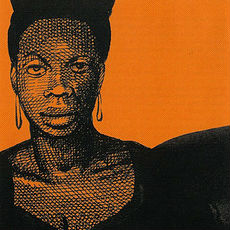If you're looking for heroes of the civil rights movement, there are the usual suspects, the names that everyone knows: King, Shuttlesworth, Abernathy, etc. But how about the people who were heroes a little more indirectly? Those who were heroes for other reasons, but lent their fame to the cause? I speak of the entertainers.
Lena Horne, Nina Simone, Miriam Makeba, Abbey Lincoln, Diahann Carroll, and Cicely Tyson are the focus of Ruth Feldstein's How It Feels to Be Free. While Simone was the most direct and vocal member of the group when it came to civil rights, Feldstein points out how Horne, the oldest of the group, was "woken up" by her younger colleagues and how Makeba bridged the gap between the freedom struggles in America and South Africa. All of these women took a stand on what they would, and would not, perform. For example, when Horne was signed to Warner Brothers in the 1940's, it was stipulated in her contract that she would not play domestic workers. Another point Feldstein makes is that these women were at the same time making a case for feminism. While their Caucasian sisters got more press, for Simone and company, it was all part of the same cloth. While the tone of this book is scholarly, it is quite readable, and comes in at under 200 pages of narrative. Curl up with this the next snowy weekend you have.
Motown produced its share of heroes, not least Martha Reeves and the Vandellas. In Ready for A Brand New Beat, Mark Kurlansky traces the making and the influence of "Dancing in the Street." He gives a history of Motown Records and Berry Gordy as well as the songwriters and Reeves, the making of the song itself (done in two takes), and the vast pull of the song, both on Caucasian and African American audiences. In fact, a lot of time is spent on how "Dancing in the Street," which Martha Reeves contends to this day was meant as merely a party song, became the theme of the Black Power movement that was starting to take hold when it was released. Kurlansky has received awards for his popular books on a wide range of topics, and he does not disappoint here. He is capable of talking about the history of rock and roll, music education in Detroit, and the concept of double meanings in African American lyrics while making sure his tome is smaller than a phone book. In fact, Ready for a Brand New Beat zips right along, and can probably be read in an evening or two.
Strange Fruit by David Margolick traces both the history of the title song and Billie Holiday, who made the song famous. While Holliday's personal life was a mess, her voice has made her a hero to many a singer and jazz musician. The lyricist, Abel Meeropol, was a southern Communist who later adopted Julius and Ethel Rosenberg's orphans. As for the song itself, it has busted genres and is still performed, albeit rarely, given its subject matter and graphic lyrics. Margolick does research into various media of the time to see how various audiences reacted as well as interviewing as many surviving members of the audience where Holliday first performed "Strange Fruit." While older than most of the songs considered part of the civil rights canon, this song was influential and helped galvanize the vanguard. Being a journalist, Margolick is concise and keeps things moving in this relatively slim volume.
There are plenty of other entertainment heroes of the civil rights movement. I have focused mostly on the women, as is my wont. Of course, I can't help but plug one of my own posts for another set of civil rights heroes: Pops and Mavis Staples. Please feel free to name your favorite entertainers of the civil rights movement in the comments section.




Add a comment to: Women Entertainers and the Civil Rights Movement